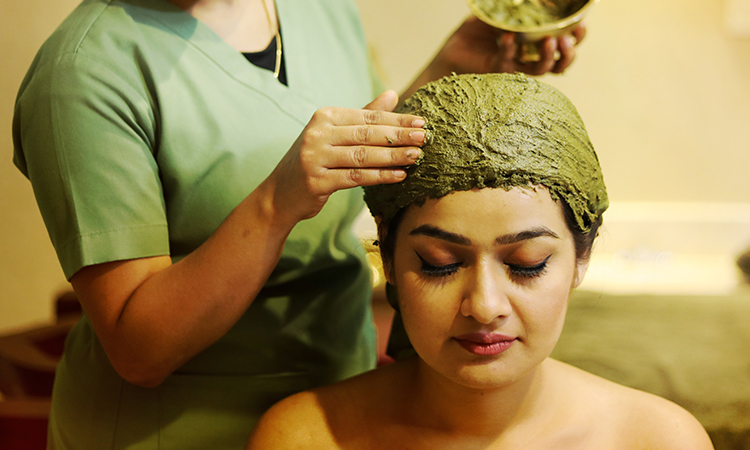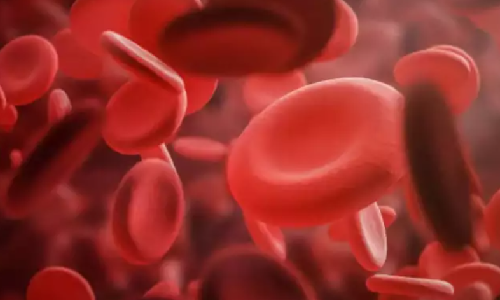In today’s environment, where air, water and even food are impure, our hair health often suffers. Chemical products may offer temporary relief; but in the long run, they only strip our hair of its natural sheen and vitality. Ayurveda, on the other hand, offers a natural solution – thalapothichil. Also known as Shirpolepa, this ancient Ayurvedic therapy rejuvenates the scalp, promotes healthy hair and deeply relaxes the mind. This traditional treatment from Kerala, India, provides holistic solutions to many modern hair care challenges. Understanding Thalapothichil Thalapothichil is a Malayalam word. ‘Thala’ means head and ‘Pothichil’ means covering. This therapeutic procedure involves applying a medicated herbal paste over the head, which helps correct imbalances and relax the body and mind. In Ayurveda, practitioners link hair thinning, baldness, and early greying to an imbalance in Doshas, especially Pitta. The herbal paste has cooling and calming effects on the scalp. Hence it is particularly beneficial for balancing excess Pitta. This makes the treatment highly effective for various psychosomatic disorders. Thalapothichil Procedure Usually, such a procedure should be carried out under the guidance of an expert Ayurvedic practitioner. Still, if you are advised so and you want to do it at home, I will make it simple for you. Here’s a step-by-step breakdown of how Thalapothichil is performed: Preparation First, sit comfortably on a chair. It is always best to start with a clean scalp for easy absorption of the ingredients. Taking a head bath a day before is completely fine. At our clinic, we start with a gentle head massage using specific medicated oils to prepare the scalp. You can work with any cold-pressed virgin oil. Organic black sesame oil, however, is the best choice. Herbal paste application A fresh herbal paste is prepared with the herbs chosen according to the constitution and condition of the individual. Some common herbs that you can use at home include Amla – rich in antioxidants and vitamin C, Neem – with loads of antibacterial and detoxifying properties, and Brahmi – for mental clarity and inducing calm. These herbs should be cooked with buttermilk which in itself is a cooling ingredient. This herbal paste is applied uniformly over the scalp, creating a layer about 0.5 to 1 centimeter thick, leaving a small hole in the center. Oil pouring Medicated oil is poured into the hole selected according to the individual’s health factors. For instance, for people with extreme Pitta aggravation, cooling oils with Sandalwood as the main ingredient is a great choice. You can consult your doctor to understand what oil works best for you. Covering The paste is then covered with leaves, such as banana or lotus leaves, and a cloth, leaving the central groove open. You can also tie a band around the head to secure the leaf covering. Duration Leave the paste on the scalp for approximately 30 to 45 minutes. Experts recommend not straining your eyes during this period by avoiding reading books or watching screens. I’ve seen people doing this in salons while undergoing expensive spa treatments. You’re here to relax, so do it. Listen to the soft music or simply meditate! Completion As a final step, we gently remove the paste and follow it with a soothing head massage. The massage helps in the easy penetration of the herbal ingredients, improves blood circulation, and also nourishes the scalp and hair follicles. This treatment offers double benefits – improving the physical health of the scalp and hair and fostering a sense of calmness and serenity contributing to overall well-being. Benefits of Thalapothichil Thalapothichil isn’t just a relaxing treatment; it offers a plethora of benefits: Balances Pitta Dosha Relieves stress and mental fatigue Improves sleep quality Cures insomnia Enhances hair health Stabilizes the nervous system Improves memory and concentration Activates the Marma points Enhances the health of the head and neck region These benefits make Thalapothichil a sought-after therapy for both therapeutic and cosmetic purposes. Indications: Who Can Benefit? Experts recommend Thalapothichil for various conditions, including: Insomnia and sleep disorders Hypertension Chronic headaches and migraines Dermatitis, dandruff, and hair loss Premature graying Anxiety, depression, and other psychosomatic disorders If you’re experiencing any of these conditions, ask your doctor today about Thalapothichil. Thalapothichil: Your Questions Answered! Thalapothichil (Shiro Lepa) is one of those beneficial therapies that have been existing in Ayurveda for centuries. But if you’re unfamiliar with it, you might have some questions – “Is it safe?” “How often should I do it?” or “Will it really resolve my hair problems? No worries! I’ve got you covered. Below are some of the frequently asked questions regarding Thalapothichil that I will try to answer most simply: Can you customize Thalapothichil for my body type? Absolutely! Ayurveda is not a one-size-fits-all approach. Every individual has a different constitution (Vata, Pitta, Kapha) and needs different treatment. You can customize Thalapothichil to your individual requirements. A trained Ayurvedic doctor would check your Prakriti and Vikriti before prescribing the right herbs, oils, and the optimal frequency. And this way, you’re not just getting a random therapy, but receiving a truly effective treatment for your body and mind. Pretty cool, right? Does it have any side effects? For the most part, nope! This is a gentle, natural, and safe therapy well tolerated by all skin types. However, as Ayurveda emphasizes, every Prakriti is different. If you have super sensitive skin or are allergic to certain herbs, mild irritation may occur. This makes it really important to check with an expert before opting for this therapy. Better safe than sorry! How often should I get Thalapothichil for maximum benefits? This completely depends on the condition of your hair and scalp. If you’re experiencing extreme hair fall, dandruff or scalp infections, you may require weekly or bi-weekly visits. As you start noticing… Continue reading Thalapothichil – Ayurveda’s way to hair health
Thalapothichil – Ayurveda’s way to hair health







